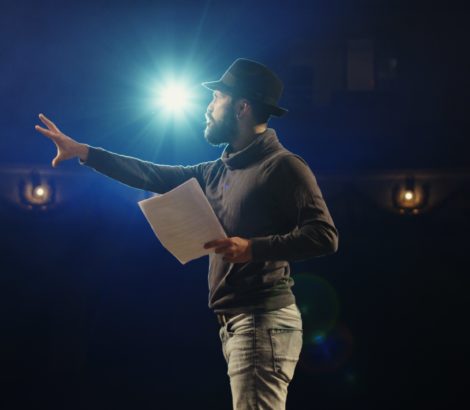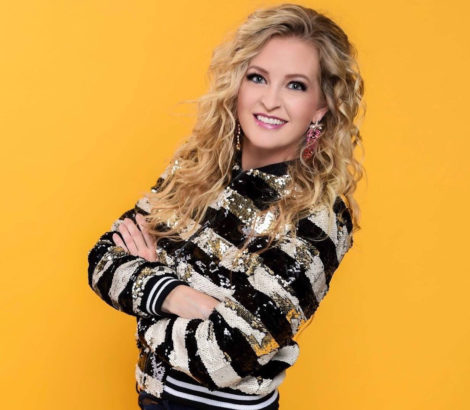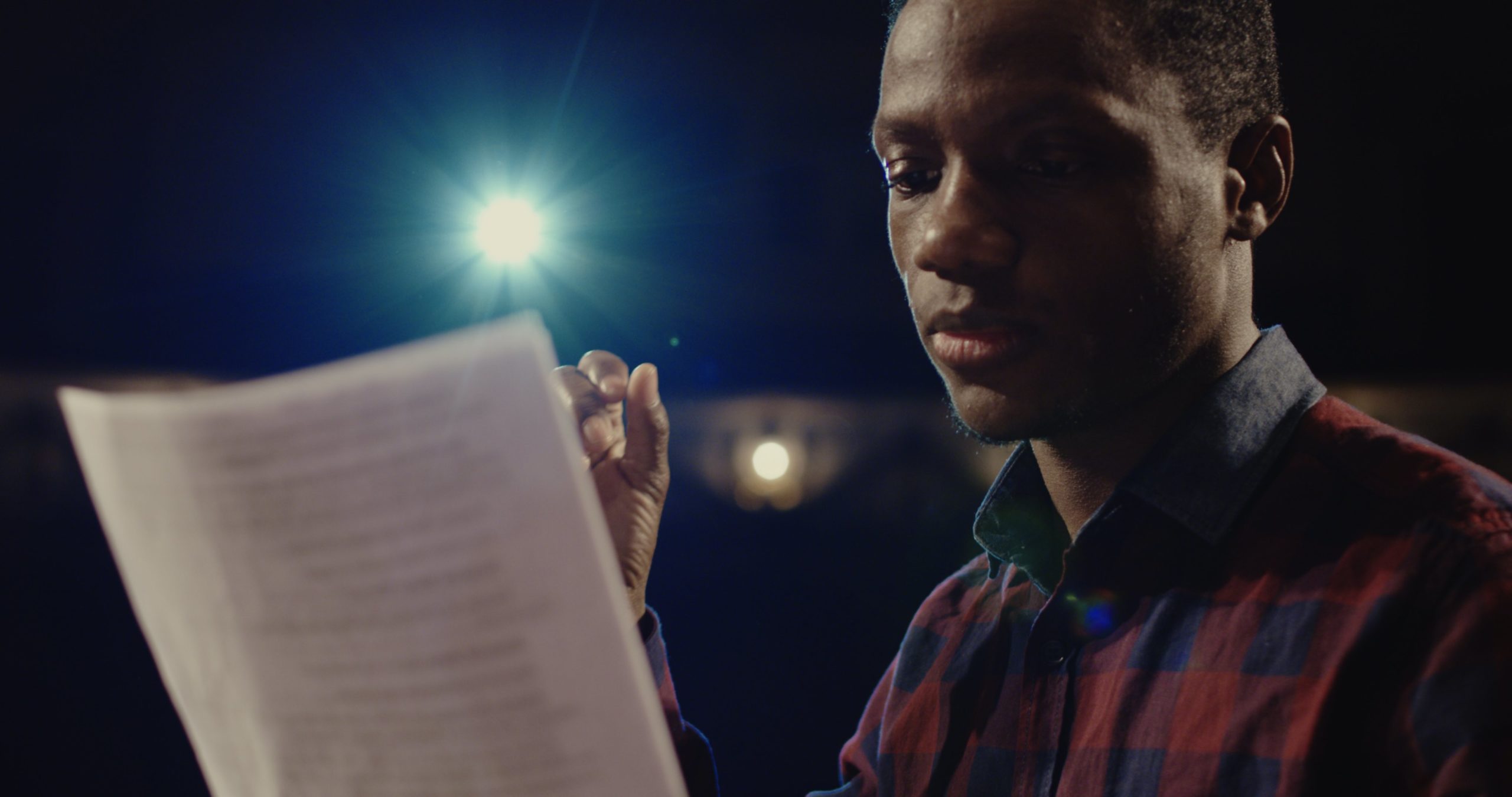Monologues are hot again! For years it seemed unless you were auditioning for a conservatory or theatre company, the art of monologuing became obsolete. Nowadays a lot of actors are realizing how useful it is to have a monologue (or six) in their pocket in case they have an opportunity to make a fan out of an agent or casting director. It’s also a great way to extrovert your talent online. Monologue contests have been trending. Some actors just miss working on their craft in acting class and since it usually requires physical interaction with other actors, working on monologues has become a great way for actors to refine their skills and stay sharp while also having a little something at the end of it to show off their talent when the opportunity arises. Crafting a great performance begs you to harness your talent and utilize your training, but the first and possibly most difficult part of delivering a great piece is how to pick a monologue.
GET CLEAR ABOUT YOUR ACTING GOALS
First of all, it’s important to determine the purpose of your monologue performance. In order to get to the bottom of that, I recommend that you start with your acting business goals. Are you looking for representation? Are you looking for better representation? Are you trying to get a casting director to notice you? Which casting director specifically? What kinds of shows or films do they tend to work on? Doing a bit of market research will help you get clear about these things.
GET CLEAR ABOUT YOUR CASTING
Next, you need to hone in on your casting. What kinds of roles are out there that you are right for? Keep in mind what is trending right now. What age range do you play? You don’t want to bother with a monologue from a character in her forties if you play 20-30 years old. Be honest with yourself. What kinds of shows are you likely to land a role on? Try to find material that fits the tone of those shows. Your goal is for agents and casting directors to see you as being castable. A monologue is not just a way for you to say “Hey, look at what I can do!” It’s an opportunity for you to demonstrate, “Hey, look at the kinds of roles I can book!”
PLAY TO YOUR STRENGTHS
Once you’re clear on the purpose of your monologue and your casting, the next thing to think about is what you bring to the table. What are your specific strengths: Emotional range? Dry humor? Vulnerability? Sarcasm? Do you have a way with medical or legal jargon? Try to find something that showcases your distinguishing attributes. This is an opportunity for you to demonstrate your expertise.
MONOLOGUE DON’TS
Now, to narrow your search, consider this list of MONOLOGUE DONT’S:
- DON’T PICK ORIGINAL MATERIAL (DON’T WRITE YOUR OWN) The purpose of showing a sample of your work is to show what you can do with someone else’s writing. It’s your opportunity to demonstrate how you can interpret a piece of narrative with your own perfect, unique and beautiful instrument. (Of course there are some cases where actors are asked to submit original monologues. Like all things, there are always exceptions.)
- DON’T PICK A FAMOUS MONOLOGUE PERFORMED BY A FAMOUS ACTOR You don’t want your audience comparing your work to a celebrity’s work. You want them to see you and what you bring to the table as an artist. As a general rule, you want to pick a monologue that won’t distract them from seeing your talent.
- DON’T PICK A MONOLOGUE WITH A LOT OF PROFANITY OR POTENTIALLY OFFENSIVE CONTENT Again, it’s just distracting. You want to perform for your audience and anything that might be super controversial or might offend someone is too chancy and could potentially distract from a great performance of a solid piece of writing. I’m not saying NO PROFANITY, but if it’s a lot of profanity or has a lot of sexual innuendos you run the risk of alienating some of your audience.
- DON’T PICK A MONOLOGUE THAT IS A RANT OR SPEECH This is a dangerous place to play, because there is nothing for you to work off of except your own internal choices and thoughts. It’s much more powerful to watch a character with an objective, working at getting something, having high stakes, not knowing what’s going to happen next. Monologues require listening, too. I always advise actors to never work alone, and monologues are a tricky trap.
MONOLOGUE DO’S
Hopefully that helps you eliminate some of your choices when picking a monologue. Now, here are some MONOLOGUE DO’S:
- PICK A MONOLOGUE THAT ISN’T TOO LONG, 1-2 MINUTES MAX Keep in mind, if you intend to post on social media, most platforms have a 60 second time limit, so keep it under a minute. There are some monologue competitions out there (1 Minute Monologue, Monologue Madness, Mandy’s Monologue Competition) that want you to keep it a minute or less. Keep in mind that casting directors and agents are likely to have made up their mind about you in the first ten seconds, so leave them wanting more.
- PICK A MONOLOGUE THAT IS ENTERTAINING Always put yourself in the shoes of your audience. Think about their experience. Pick a monologue that is fun or interesting to watch, is emotionally moving, and keeps the viewer on the edge of their seat. You want them to leave having enjoyed watching you, whether it’s comedy or drama.
- PICK A MONOLOGUE THAT HAS EMOTIONAL RANGE This is your opportunity to show that you can play more than one emotional state. Try to find something that has different levels, an emotional life that builds, an arc. You have a full minute so use that time to show more than just one of the notes you can play. It’s always more interesting to watch a character live through something than it is to watch them stuck in one feeling for a long time.
- PICK A MONOLOGUE THAT YOU ENJOY PERFORMING This is one of the very few (if only) times when no one can get between you and the role you want to play. You get to cast yourself, so have fun! In my experience as a coach, I’ve found that actors tend to be drawn to characters that are in their casting. There are exceptions of course, so I encourage you to make sure you are honest with yourself about your casting first and foremost. If you like the monologue you choose, you’ll have a much easier (and more fun) time memorizing it, crafting a killer piece of work and executing the performance tirelessly, time and again.
THE MONOLOGUE SEARCH
There are a lot of great resources for finding great monologues. A lot of my students have found great pieces on Monologue DB, Monologue Blogger, Daily Actor and Backstage. Of course, you run the risk of coming across monologues that other actors are also finding thus making it less likely for you to find something your audience hasn’t seen a hundred times. Consider downloading scripts (actors should always be reading scripts anyway!) to find monologues in them or transcribing them from critically acclaimed episodic television. Just make sure you’re seeking out great writing!
Once you’ve found your monologue, it’s time to roll up your sleeves and do the fun part: Crafting Your Monologue.
For more helpful tips and tricks for actors, visit LosAngelesActingCoach.com or email coach@losangelesactingcoach.com to schedule online 1:1 private coaching.
For online class announcements, follow LosAngelesActingCoach on Instagram and Facebook.












